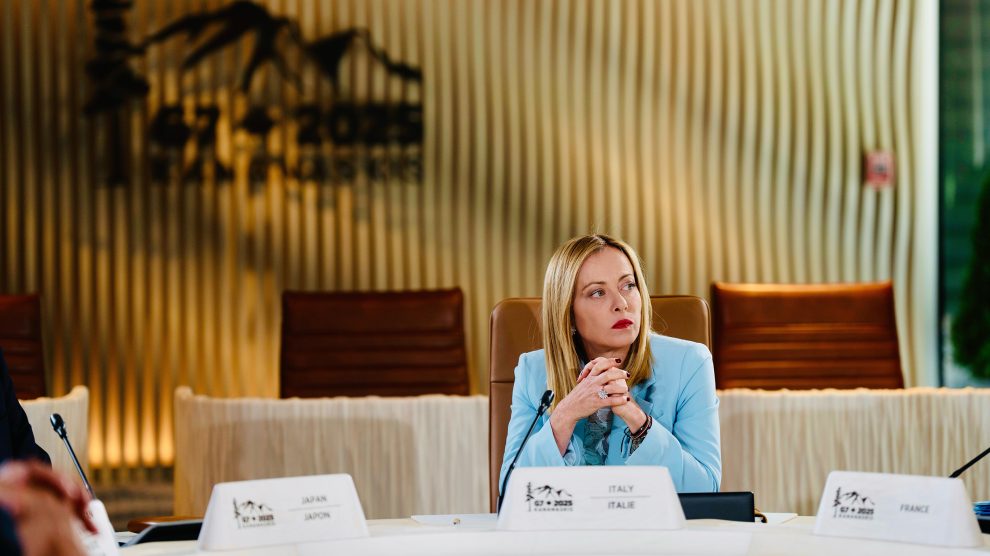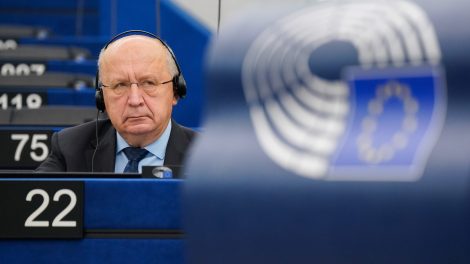From Rome to the G7. As the military crisis between Israel and Iran risks spiralling into full-scale war across the Middle East, Italy is taking action to prevent that outcome and assert its international credibility.
- At the G7 summit in Canada, Prime Minister Giorgia Meloni drew a firm red line: “An Iran armed with nuclear weapons is a threat to all of us, not just Israel.”
- She rejected the idea of Russia acting as a mediator and called for a diplomatic solution with more substantial involvement from Gulf states.
Diplomatic momentum. Foreign Minister Antonio Tajani has held urgent talks with his counterparts in Iran, Israel, and Oman.
- Italian embassies across the region are engaged in shuttle diplomacy.
- The goal is to defuse the conflict, halt further military action, and bring Iran back to the negotiating table with the US administration led by Donald Trump, which now seems like the only viable off-ramp.
Behind the scenes. Within hours of the outbreak, Meloni convened a high-level meeting with intelligence and key ministers to assess the situation holistically.
- Italy sees itself as a potential bridge between sides, leveraging its unique position for a multilateral, multidimensional de-escalation strategy — critical to preventing a broader war in a region where Italy’s geopolitical interests are directly involved.
What’s at stake? Regional stability is Rome’s top priority, as a regional collapse would fuel chaos and radicalisation, spilling into the broader Mediterranean and directly affecting Italy.
- Gulf relations: Italy is a trusted partner of Saudi Arabia, the UAE, and Qatar — all of which are seeking to avoid escalation.
- Maritime security: Italy’s Maritime Security Committee (CISM), chaired by Deputy Transport Minister Edoardo Rixi, activated emergency measures to protect shipping lanes.
- Energy and IMEC: The crisis threatens the India-Middle East-Europe Corridor, championed by Rome, and could severely impact the oil and gas market.
- Energy costs, already among the highest in Europe in Italy, could surge further.
Spotlight on the opposition. The so-called “campo largo”, the opposition bloc, is cracking.
- Leftist parties are split with the centre-left over a protest rally — scheduled for Saturday — that includes anti-Israel activists and supporters of Iran’s “unconditional resistance.”
- There is no alternative diplomatic roadmap, no serious proposals on Gaza or the nuclear issue, and no international shared view for the Democratic Party and 5 Stars Movement political coalition.
The paradox. While Italy aligns with G7 and EU efforts to de-escalate, parts of the opposition appear more interested in exploiting the crisis to inflame domestic politics.
- But this moment calls for strategic clarity, not ideological ambiguity.
What we’re watching. Italy is one of the few European countries able to speak with all sides — including relevant diplomatic channels.
- Acting as a facilitator — as it did when it hosted US-Iran nuclear talks — is not only a duty but a lever to reinforce international standing.
- At times like this, domestic political games must not override national strategic interests.





